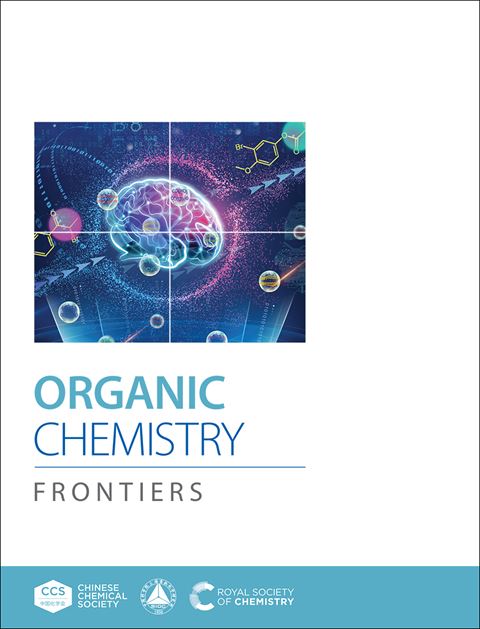Recent Advances in C(sp³)–H Functionalization via Molecular Electrocatalysis
IF 4.7
1区 化学
Q1 CHEMISTRY, ORGANIC
引用次数: 0
Abstract
The selective functionalization of inert C(sp³)–H bonds remains a central challenge in modern organic synthesis. Molecular electrocatalysis provides a sustainable platform for C(sp³)–H activation by enabling catalyst-controlled electron transfer or atom transfer under mild conditions. This review highlights recent advances in molecular electrocatalytic systems, including both transition metal-based and metal-free catalysts, for efficient C(sp³)–H functionalization. Mechanistic insights into outer- and inner-sphere electron transfer pathways are discussed, along with their applications in enhancing regio- and enantioselectivity in asymmetric radical transformations. Special emphasis is placed on emerging photoelectrocatalytic approaches that integrate electrochemical redox control with photochemical excitation. Through critical evaluation of representative systems, this review illustrates the growing potential of molecular electrocatalysis for achieving selective and sustainable C(sp³)–H functionalization.C(sp³)-H分子电催化功能化研究进展
惰性C(sp³)-H键的选择性功能化仍然是现代有机合成中的一个中心挑战。分子电催化通过在温和条件下实现催化剂控制的电子转移或原子转移,为C(sp³)-H活化提供了一个可持续的平台。本文综述了分子电催化系统的最新进展,包括过渡金属基和无金属催化剂,用于高效的C(sp³)-H功能化。讨论了外球和内球电子转移途径的机制见解,以及它们在增强不对称自由基转化中的区域和对映体选择性方面的应用。特别强调的是将电化学氧化还原控制与光化学激发相结合的新兴光电催化方法。通过对代表性体系的批判性评价,本综述说明了分子电催化在实现选择性和可持续的C(sp³)-H功能化方面日益增长的潜力。
本文章由计算机程序翻译,如有差异,请以英文原文为准。
求助全文
约1分钟内获得全文
求助全文
来源期刊

Organic Chemistry Frontiers
CHEMISTRY, ORGANIC-
CiteScore
7.90
自引率
11.10%
发文量
686
审稿时长
1 months
期刊介绍:
Organic Chemistry Frontiers is an esteemed journal that publishes high-quality research across the field of organic chemistry. It places a significant emphasis on studies that contribute substantially to the field by introducing new or significantly improved protocols and methodologies. The journal covers a wide array of topics which include, but are not limited to, organic synthesis, the development of synthetic methodologies, catalysis, natural products, functional organic materials, supramolecular and macromolecular chemistry, as well as physical and computational organic chemistry.
 求助内容:
求助内容: 应助结果提醒方式:
应助结果提醒方式:


